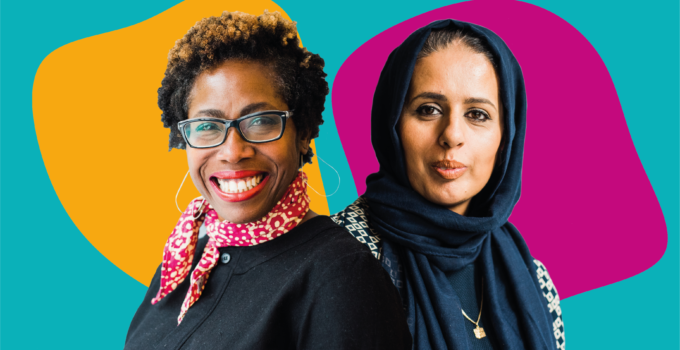Proactively challenge racism and build an inclusive culture
Creating an inclusive culture that supports every member of staff to do their best work and thrive is essential for businesses. To achieve this, organisations must address inappropriate or racist behaviour and outdated attitudes, and develop an understanding of concepts like privilege and allyship.
With over three decades of experience, EW Group puts anti-racism training at the forefront of all its programmes. The training is also available as a standalone course for companies looking to increase their focus on racial equality.
Positive and proactive
Our approach to anti-racism training
We believe that incorporating positive and proactive content into your sessions will maximise engagement and give everyone a meaningful role to play in creating an anti-racist workplace. Our training supports staff, managers and leaders to understand privilege and challenge discrimination.
Our training enables solid peer support networks, starts difficult but worthwhile conversations, and makes practical and structural changes that benefit all employees — resulting in all participants having a deeper understanding of their own privilege.
With our anti-racism, privilege and allyship training, you can combat explicit and unconscious racial bias within your organisation. In doing so, you will build a culture in which employees are comfortable with constructive challenges and feel able to raise concerns.
A culture of inclusion and belonging encourages success, unlocking benefits such as improved staff engagement and retention, a larger pool of talent, and better customer understanding. In turn, this leads to enhanced business performance, enhanced teamwork, and greater innovation and problem-solving.
Equal Workplaces
78% of employees value equal workplaces
Diversity versus Performance
US companies with diverse executive boards had a 95% higher return on equity than those lacking diversity

Tailored to your business needs
What to expect from our anti-racism training
Our anti-racism training sessions are tailored to the specific needs of your business and will reflect the day-to-day challenges that staff encounter. Using these insights, employees can then use positive reinforcement and indirect suggestions to change how they act. This makes it easier for you to drive change, without having to convince, argue, or ‘sell’ new ways of thinking.
- Understand privilege and use it for good
- Identify and learn about the experience of racial discrimination
- Enable intent listening and build trust
- Comprehend the emotional impact, and agree on action
- Create a network of capable responders to provide support
- Consider and plan how to act as an ally
Influence & Accountability
Driven by results
We help people find the “why” and explore what their respective mental blockers might be. If teams understand this, it’s a lot easier for them to connect to their mission of allyship and make a concerted effort to be supportive or involved.
By the end of the session, leaders, managers and team members will have been taught a whole range of useful skills, including:
- Influencing and holding others accountable
- Understanding and managing perceptions
- Educating others, changing hearts and minds
- Grasping the issues, remedies, and how to put words into practice
What our clients say
Learn more about making your business a more equitable place to work for all staff
get in touch See our workAnti-Racism Training FAQs
Why is it important to be an ally in the workplace?
An ally is any person that actively promotes a culture of inclusion through intentional, positive, and conscious efforts which benefit the whole community. Allyship is a helpful concept because every single member of the team can act as an ally.
In today’s multicultural workplace, where one in eight of the working-age population is from a Black, Asian, or Minority Ethnic (BAME) background, there is simply no room for racial discrimination. Inclusivity is not only a moral cause, but a legal one — such discrimination is illegal under the Equality Act 2010.
How does privilege relate to allyship and anti-racism?
To understand how to be an ally, we must first understand our own privilege. We each have layers of privilege, based upon aspects of our identity. Race is a key facet of privilege to understand, but we can also apply this concept to sexuality, gender, age, neurodiversity, and so on. For example, workers of BAME backgrounds are often paid less than their white peers.
Our privilege may change in different social or workplace settings, and it may transform over time. Understanding the subtle ways in which these situations of advantage and disadvantage play out is central to an anti-racism programme at work.
How can you stop racism at work?
Racism at work is a wide term that includes direct and indirect racial discrimination, harassment, microaggressions, and victimisation. In order to combat racism in all its forms, businesses must educate and train every leader and employee, gather data, be accountable, and examine and change their processes. For this purpose, listening to groups that may be discriminated against is crucial. Anti-racism training is a great tool to help organisations adjust their practices to tackle discrimination head-on.




